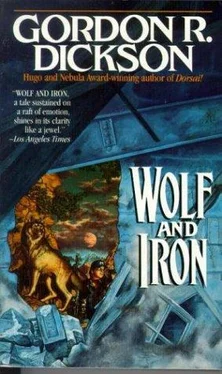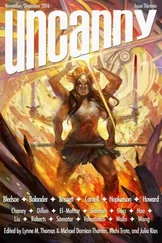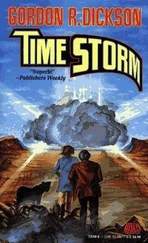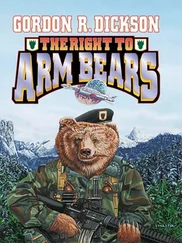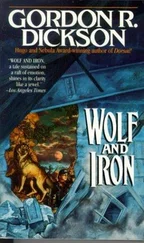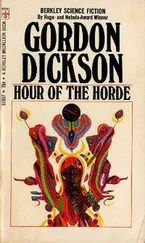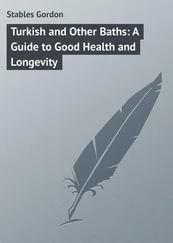They circled the invisible location of Wayne accordingly, and their zigzagging eventually brought them to the seed farm. They almost walked through a corner of its land without realizing it. Only the fact that it was open territory made them stop and look more closely. Some young bushes and immature saplings masked even this openness to a certain extent; but when they checked, it became clear that between and around this heavier vegetation were what had been organized plantings.
Working around it, they came to identify plots that had been planted with one kind of seed or another—areas in which the rowed stalks of plants even now towered above the weeds of late spring. The plots varied from something like ten to eighty acres in size and were separated one from another by open areas where only weeds flourished.
“I was told these were buffer zones,” Jeebee explained to Merry. “They marked off one experimental area from another, and they also acted as roads, in effect, on which harvesting and other machinery could get at the plots.”
Eventually they came to what seemed to be the only building on the property. It had been visible from some distance, because it was not a small structure. But like Wolf, like all people nowadays, they made any approach to a strange structure cautiously.
It was a large building of iron, with a corrugated metal roof and metal siding. It was about a hundred and fifty feet long and as high as the average barn. From a distance it looked untouched; and after examining it through their binoculars with as much wariness as Wolf, himself, might have shown, they decided to wait a night. It would be wise to see if there was any light or movement around it after dark.
So they camped in some trees at the edge of the open land, and during the night hours took turns keeping a watch on it. But nothing showed to indicate that anyone was there, so with the first predawn light to aid them, they went up to it and found it deserted. The heavy metal doors of a loading dock stood slightly ajar, indicating that the place had been left alone for some time; leaves and other windblown trash had piled up at the bottom of the opening.
The doors had evidently not been moved in some time and were hard to move. But they got them apart enough so that they could squeeze through to the inside.
Windows high in the wall, most of them still unbroken, let light into the interior.
It was a dusty, dusky sort of light. But as their eyes adjusted, it became as useful as full daylight for their purposes. They found sacks full of seed stacked near the further end of the building, which held another loading dock. Before this, inside, was a large hopper through which Jeebee remembered the already-gathered seed had been moved to be winnowed and cleaned. The sacks bore tags with dates in late August of the previous year. But the only identification of the seed itself seemed to be a letter followed by four numbers, followed by a date of the previous year.
One-year-old seed could be used; but how to tell which kind to take?
Jeebee and Merry looked about some more. There was a large, empty area in front of huge metal doors on rollers at one end of the building. Jeebee thought he remembered large machinery having been parked there, harvesters and planters. But there were no machines here now. Possibly they had been taken away somewhere back when the world had first started to fall apart. Maybe they had never been kept here on a regular basis.
There was also one dusty room, a cubicle built into a corner near the docks. It contained a couple of large metal desks, four filing cabinets, and a number of shelves with labeled glass specimen cases of seeds upon them and arranged in no particular order. The labels were marked in some form of symbols that neither Merry nor Jeebee could interpret. But on one wall there was a large map showing an area divided into rectangular sections, which drew Jeebee’s attention immediately.
As he stepped closer to it he saw that the map was actually a paper or plastic sheet about eight feet long and four feet from top to bottom. Over it there was a pane of glass, on which lines had been drawn and notations had been made, possibly by some type of crayon. Like the letter and number on the tags, they were indecipherable.
“I think the best thing we can do,” Jeebee said at last, “is head out into the fields themselves and simply go looking for a plot or field of healthy volunteers.” “Volunteers?” Merry echoed.
“That’s what I was told they call domesticated plants like these that’re left alone and simply reseed themselves, and come up in a second crop without any human attention.”
Accordingly, they went out and began their search. Jeebee was grateful for the horses, because they had a good deal of area to cover. Luckily the markers about the seed farm were still in place, not only those identifying the various fields of a certain experimental type of plant, but the ones marking the corridors of ground that spaced these fields apart. They started with corridor number one and went progressively through the rest, beginning at the end where the building was and going to the very edge of the farm itself.
Jeebee had half counted on his memory to point him toward the fields of wheat where genetic experiments were being tried out. It did not.
“Are you sure they actually were still experimenting with disease-resistant winter wheat?” Merry asked, after they had been up and down between the fields for several hours.
“I can’t be sure, of course,” said Jeebee, “but it doesn’t seem to make sense that they’d give up on it.” He waved his hand at the field on their left that they were just passing. It was a field of thin, green stalks, already at some height, but powdered with what looked like a gray dust. “That’s what we don’t want to get,” he told her, “powdery mildew. If we can just find a stand of healthy, green volunteers, we’ll know we’re home free. It’s too bad we aren’t here a little later in the year when we could actually harvest some of the seeds ourselves. But there’s a good chance, if we find a healthy field that’s reseeded itself and doing well, we’ll just take its code number. Any sacks back there in the building with the same code on their tags ought to be good bets to hold healthy, genetically resistant seeds.”
It was well past noon when at last they found a field of thick-standing green wheat stalks about knee-high.
Jeebee reined in at a corner of the field. The stalks were feathery, green, and almost happy looking in comparison to the stunted gray-dusted stems they had found until now.
“Look at that!” Jeebee waved at the healthy young plants. “That’s what we’ve been looking for. Now, if we can just find the signboard for this field and get the code number off it.”
“That shouldn’t be too much trouble, as long as the sign’s still standing,” said Merry. “We just have to ride around the edge until we come to it.”
And so they did; and so, finally, they located the signboard.
“G-4370A,” Jeebee read off the sign. “I think I can remember that. Do you think we ought to write it down?”
“I am,” Merry answered. Jeebee looked over at her and saw her using a pencil in a small, pocket notebook. “Let’s get back to that building and start looking for the sacks with matching tags.”
They went. Once back in the building, the hunt through the sacks, through the dust and the dimmed light, was almost as frustrating as their hunt had been through the fields. But eventually Merry found what they were after.
“G-4370A!” she said. “Jeebee, they’re here!”
He had been examining the tags on sacks about fifteen feet away. He hurried to her side and studied the tag.
“Looks beautiful, doesn’t it?” Merry said with a grin.
Читать дальше
